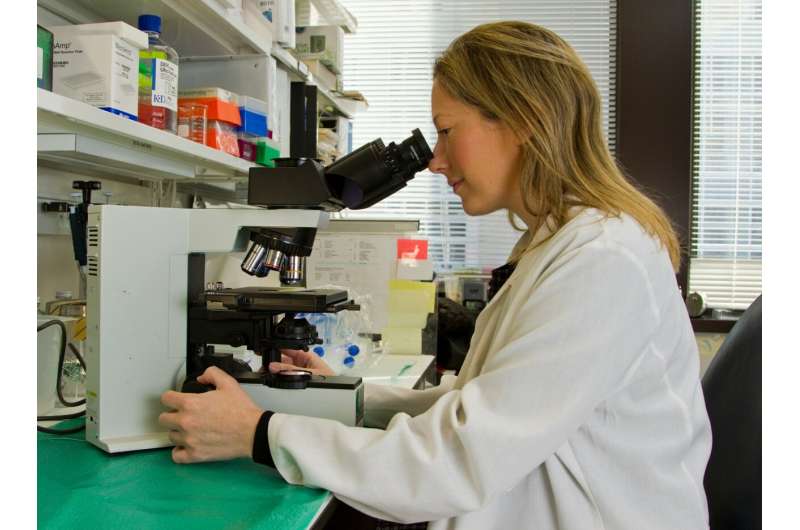This article has been reviewed according to Science X's editorial process and policies. Editors have highlighted the following attributes while ensuring the content's credibility:
fact-checked
peer-reviewed publication
trusted source
proofread
Trial for immunotherapy drug shows promise for aggressive breast cancer

University of Hawaiʻi Cancer Center researchers have conducted a phase II clinical trial investigating the potential of pembrolizumab maintenance therapy, a type of immunotherapy, in aggressive forms of breast cancer. The trial was led by Naoto T. Ueno, UH Cancer Center director, and Toshiaki Iwase, assistant professor and medical director, and was conducted at their former institution, The University of Texas MD Anderson Cancer Center.
The study produced significant findings that were recently published in Clinical Cancer Research.
Aggressive subtypes of breast cancer, including Inflammatory Breast Cancer (IBC) and Triple-Negative Breast Cancer (TNBC), present significant challenges due to their poor prognosis and limited treatment options. Chemotherapy, which targets to eliminate cancerous cells, is effective but often carries severe side effects and does not provide long-term disease control.
Alternatively, pembrolizumab, an immune checkpoint inhibitor, is a treatment that uses a person's own immune system to fight cancer, and can boost or change how the immune system works so it can find and attack cancer cells. It can also be a less toxic treatment.
"This study determined whether immunotherapy can be explored as a maintenance therapy after getting a response to chemotherapy in aggressive breast cancer. Further, it provided potential biomarkers to identify who may benefit from these types of treatment," said Ueno. "We are excited to have the opportunity to learn and develop novel immunotherapy in metastatic settings."
Promising results
The trial evaluated the safety and effectiveness of pembrolizumab as a maintenance therapy following chemotherapy. The researchers aimed to determine if pembrolizumab could offer a less toxic and more targeted alternative to traditional chemotherapy, thus improving patients' quality of life.
Results from the trial showed a promising 60% disease control rate over a four-month period, with manageable toxicity levels consistent with previous pembrolizumab studies. Additionally, the study identified a potential biomarker, high baseline T-cell clonality, associated with prolonged disease control, suggesting its role in predicting pembrolizumab efficacy.
Deborah Sumulong, a cancer patient who underwent chemotherapy, struggled with allergic reactions, as well as hair loss and lingering fatigue. She transitioned to pembrolizumab maintenance therapy for two years as a second treatment option.
"Undergoing pembrolizumab maintenance therapy made a huge difference in my cancer treatment," said Sumulong. "I experienced less fatigue; the only side effect was mild colitis (colon inflammation). My scans also showed the cancer declined, with the recent one showing it was completely gone."
"While the findings are promising, further research, including a large prospective clinical trial, is necessary to validate the identified biomarkers and refine patient selection criteria for pembrolizumab therapy," said Iwase.
More information: Toshiaki Iwase et al, Maintenance pembrolizumab therapy in patients with metastatic HER2-negative breast cancer with prior response to chemotherapy, Clinical Cancer Research (2024). DOI: 10.1158/1078-0432.CCR-23-2947



















